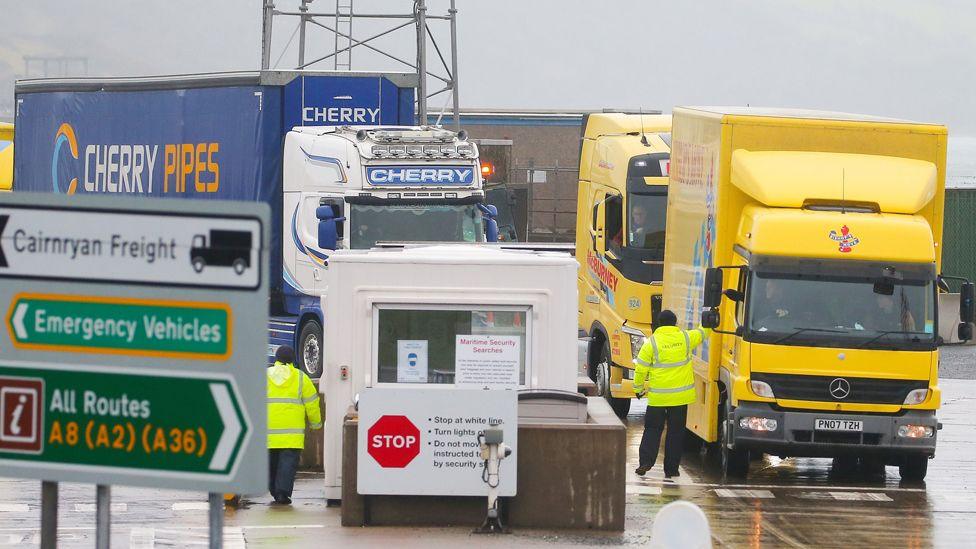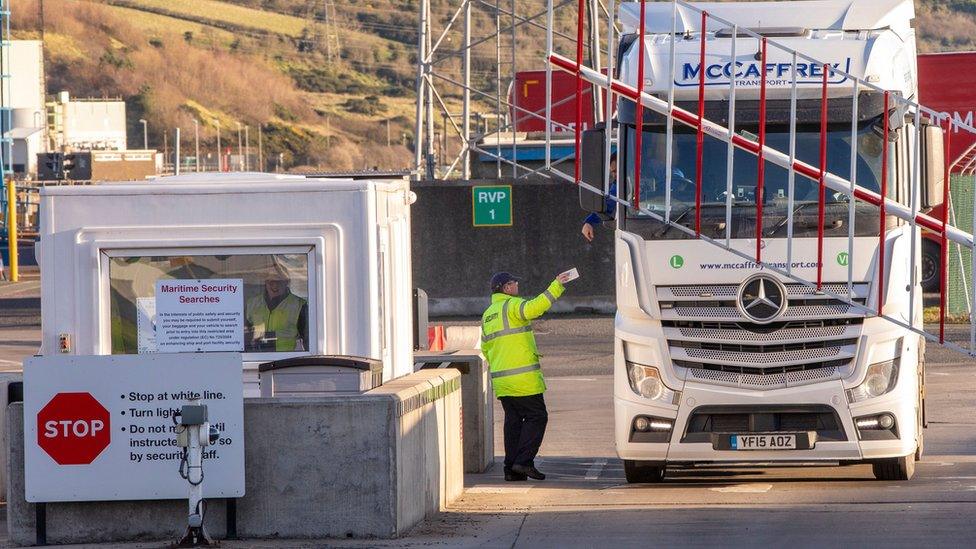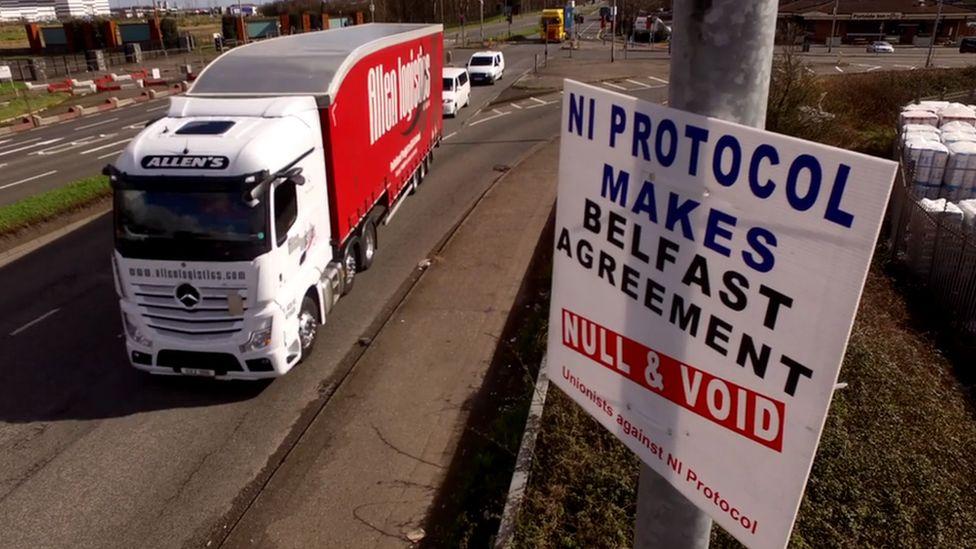Brexit: Court of Appeal hears challenge to NI Protocol
- Published

Trucks passing through controls at Larne Harbour
The Court of Appeal in Belfast has begun hearing a challenge to the lawfulness of the Northern Ireland Protocol.
A group of unionist politicians claim it is unlawful as it conflicts with the 1998 Good Friday Agreement and the Act of Union.
Earlier this year the High Court dismissed their challenge on all grounds.
A judge ruled the protocol had lawfully overridden part of the Act of Union.
Mr Justice Colton found that the Withdrawal Agreement Act, which includes the protocol, conflicts with Article 6 of the 1800 Act of Union.
Article 6 concerns free trade between Britain and Northern Ireland stating: "The subjects of Great Britain and Ireland shall be on the same footing in respect of trade."
However, Mr Justice Colton said that where the Withdrawal Agreement Act conflicts with Article 6 then the new Act is "to be preferred".
He said the Act of Union could not be used to block the "clear specific will of Parliament".
This was seen to mean that Article 6 was "impliedly repealed" by the Withdrawal Agreement Act.
That means that the more recent legislation automatically overrides the older law.
Normally, a constitutional law, like the Acts of Union, can only be expressly repealed, though it can arguably be impliedly repealed by another constitutional law.
In the opening of his challenge John Larkin QC focused on the Act of Union and implied repeal.
He said his "fundamental starting point" was that "there can be no implied repeal of constitutional statutes".
Sausages, riots and the Northern Ireland Protocol
Mr Larkin said that legal precedents show that repeal of constitutional law must be done expressly and that "general words" were not enough.
He added that the Withdrawal Agreement Act "contained nothing to suggest Parliament intended to override fundamental constitutional guarantees".
Mr Larkin later turned to arguments that the protocol had changed the constitutional status of Northern Ireland as defined in the Good Friday Agreement.
Parliamentary sovereignty
Appearing for the government, Tony McGleenan QC said that when the relevant parts of the Withdrawal Agreement Act were seen "in full constitutional context" they would act as a "complete answer" to the Article 6 aspects of the appellants' case.
He said the issue was ultimately about parliamentary sovereignty, a thread that runs "end to end" through the case.
Mr McGleenan said Article 6 was not actually repealed, but instead had to be read subject to the protocol, something he described as a "sophisticated parliamentary construct".
He pointed to the fact that if the NI Assembly exercised its right to vote down parts of the protocol then Article 6 would be in effect again, showing that it had not been repealed.
He said therefore the court did not have to engage with the issue of implied repeal.
He added that the case was not about "abstract analysis of competing statutes" or the issue of implied repeal, but was simply about looking at what parliament intends.
The case continues.
Related topics
- Published14 September 2021

- Published30 June 2021

- Published2 February 2024
